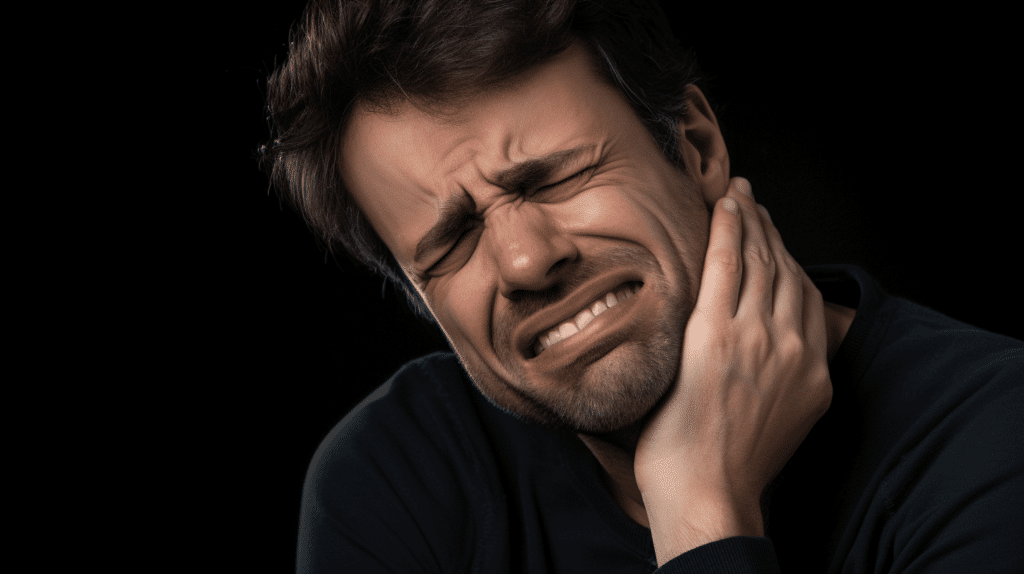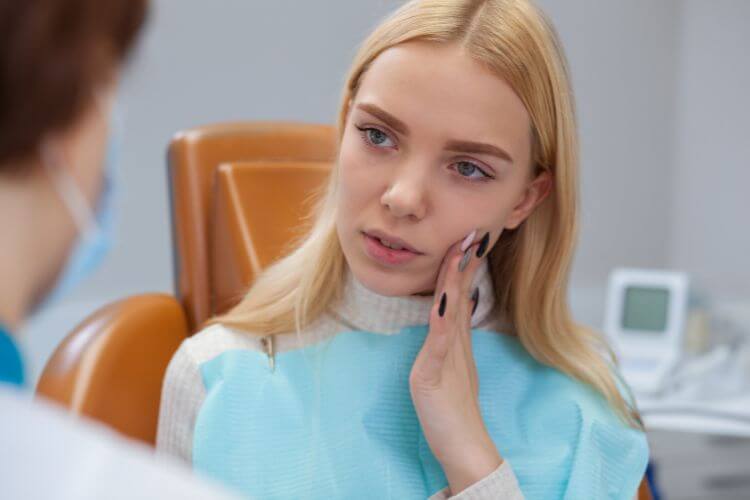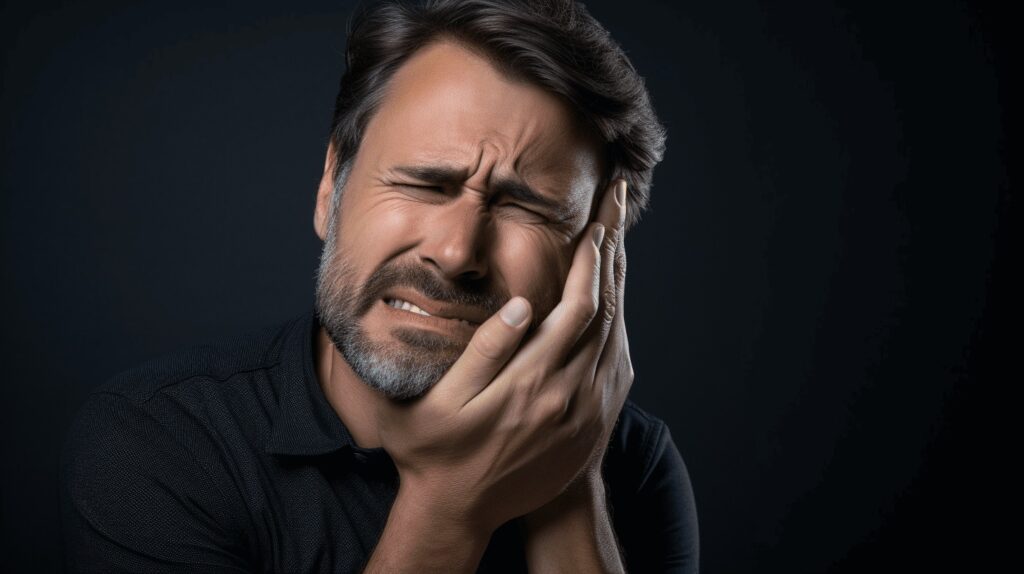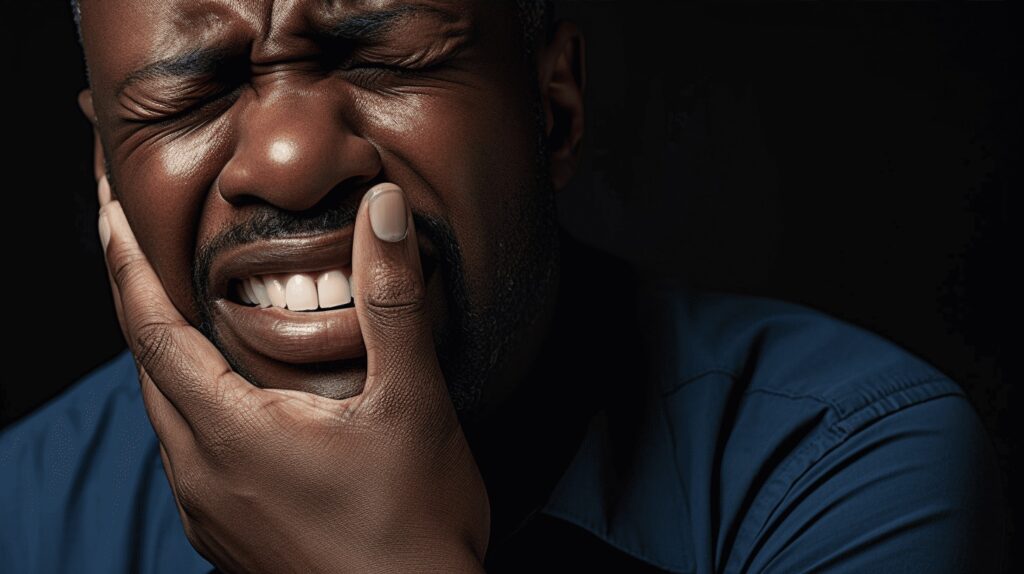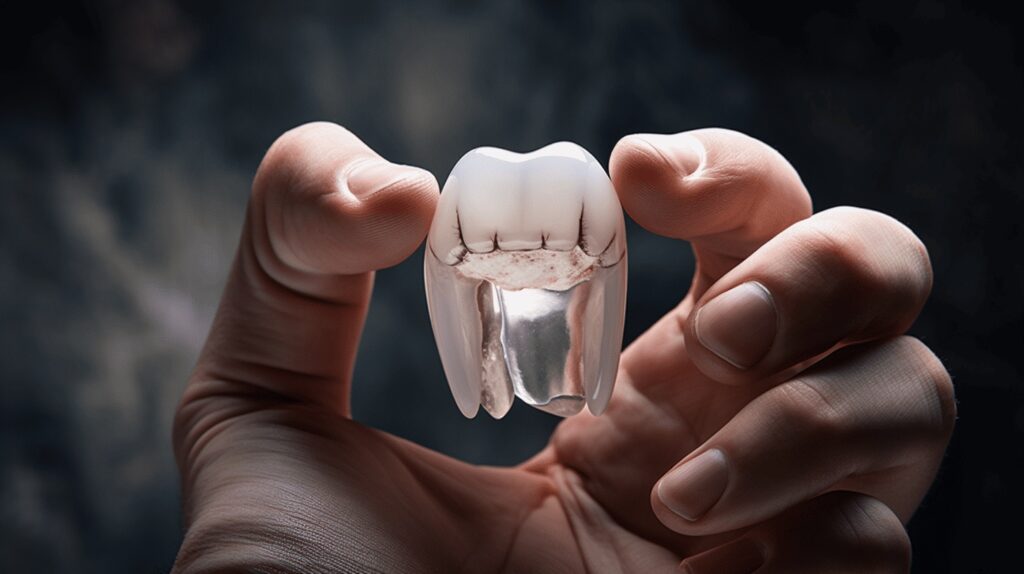In the hustle and bustle of our daily lives, unexpected dental issues aren’t just inconvenient—they’re downright painful! 😣 These surprises can really put a damper on our plans, underlining the crucial need for emergency dental care. Picture this: you’re getting ready for an important presentation at work, when suddenly you find yourself wincing due to an unbearable toothache. That’s not just a small hiccup, that’s a full-blown dental emergency! 🚑 And trust us, you’re not alone.
Without a doubt, these instances underscore the fact that dental health is an integral part of our overall well-being. They outline the critical role of emergency dental care services, which cater to immediate and severe dental problems. These services should not be considered a luxury, they’re an essential part of healthcare systems globally. But, just how accessible and known are these services? Through this article, we intend to shed light on the importance and accessibility of emergency dental care. We’ll also cover how routine dental check-ups can minimize the need for emergency situations.
Stay tuned to discover more about the unplanned dental dilemmas and their solutions! 😄
Table of Contents
Understanding Dental Emergencies
Have you ever woken up in the middle of the night, clutching your jaw and wondering if you’re experiencing a dental emergency? 🚨 It can be scary, especially when you’re unsure whether what you’re experiencing warrants a trip to the dental clinic, or if it can wait till your next scheduled appointment. In this section, we aim to debunk the confusion around dental emergencies. This way, when push comes to shove, you’ll know exactly what to do.
Types of Dental Emergencies
When it comes to dental emergencies, they come in all shapes and sizes. The following are the most common:
- Toothache: Intense tooth pain that just won’t go away can be an indicator of a dental emergency.
- Knocked-Out Tooth: If a tooth gets knocked out, immediate action is needed.
- Broken Tooth: A broken or chipped tooth, especially if it has sharp edges that can hurt your mouth, should be attended to immediately.
- Infections: If you have an abscess (a painful, pimple-like swelling in your mouth), it’s an emergency as it could lead to more serious infections if not promptly treated.
Recognizing a Dental Emergency
So, when does a dental situation become a dental emergency? As we’ve already mentioned, the severity of your discomfort can indicate an emergency. However, other signs include:
- Swelling in your mouth or face
- A loose tooth or teeth
- Severe pain
- Bleeding from the mouth
- Bulges, swelling, or knots on your gums
In case of any dental emergency, please don’t wait and risk making it worse. Reach out to a professional right away to get the help you need. Here’s hoping that you only have to visit the dentist for routine check-ups, rather than an emergency. But in case you do, know that being prepared can make a big difference. 🦷💪
Significance of Immediate Care
When it comes to taking care of ourselves, we all know that a healthy diet 💪, regular exercise 🏋️♀️, and enough sleep 😴 are essential. But there’s one component that often gets overlooked: immediate medical care. Rather than waiting for a health issue to spiral out of control, immediate care strives to nip these issues in the bud, bringing you back to your best self as soon as possible.
Timely Dental Care 🦷
We’ve all been guilty of neglecting our oral health at one point or another, haven’t we? However, taking care of our teeth and gums isn’t just about keeping our smiles bright and beautiful; it’s also about keeping our bodies healthy.
- Regular dental check-ups can catch issues early: By visiting your dentist regularly, you stand a better chance of catching potential problems in their early stages. This allows for a more straightforward and cost-effective treatment plan.
- Prevention is better than a cure: Regular cleanings can help prevent tooth decay and gum disease, both of which can have significant impacts on your overall health.
- Dental issues can be indicative of other health problems: Conditions like oral cancer and gum disease can often be early indicators of more severe health issues like heart disease and diabetes. By keeping on top of your dental health, you can help keep an eye on your overall health too.
Impact on Overall Health 💖
That links on to another important factor to consider: your overall health. While we might not think it, getting immediate medical care when necessary can significantly impact our overall health.
- Immediate care can stop health problems from worsening: Health issues often have a way of spiralling if not addressed promptly. Immediate care can stop them in their tracks before they have a chance to get worse.
- It can help you maintain good health: By treating issues early, you’re less likely to suffer from long-term health problems or complications. This, in turn, can help you maintain better overall health in the long run.
- Immediate care can save lives: In severe cases, getting immediate care can quite literally be a matter of life and death.
“Health is a state of complete physical, mental, and social wellbeing and not merely the absence of disease or infirmity,” as famously quoted by the World Health Organization. By understanding the importance of immediate care, we can all take steps towards achieving this state of complete wellbeing. So the next time you’re grappling with a health issue, do yourself a favour and seek immediate medical care – it might just be the best decision you ever make!
Common Obstacles in Accessing Emergency Dental Care
From painful cavities to terrifying tooth abscesses, a dental emergency can strike at any time – causing immense discomfort and frustration. 🦷 But while we can all agree that immediate attention is critical in these scenarios, gaining access to emergency dental care can be full of potential roadblocks. The barriers can come in various forms such as lack of awareness, financial constraints, and lack of availability. Let’s break these obstacles down. 👇
Lack of Awareness
Unfortunately, the lack of general awareness around oral health is a major hurdle for many individuals. 🤔 It’s not uncommon for folks to underestimate the severity of their dental issue and delay seeking treatment. We often mistake significant dental concerns like bleeding gums or persistent toothache, as minor problems that can be treated with over-the-counter solutions. In reality, these can be warning signs of a more serious underlying issue that requires professional help. 🔍 Improving awareness about different oral health issues and the necessity of seeking immediate emergency dental care is crucial to overcome this barrier.
Financial Barriers
Let’s face it; dental care can be pricey, especially when it comes to emergency treatments. 😣 The financial aspect often becomes a deterrent for many individuals who prefer to “wait it out” rather than face hefty bills. Cost issues aren’t just about the treatment alone, insurance coverage or lack thereof can also complicate matters. Many people can’t afford the premiums for dental insurance, which puts out-of-pocket costs beyond their financial reach. So, it’s no surprise that financial barriers are a significant hindrance to accessing emergency dental care. 💰💔
Lack of Availability
The final major obstacle is the lack of availability. Whether it’s a dearth of emergency dentists in your locale or an appointment backlog, accessibility can indeed be a hassle. 📅🚫 It’s a domino effect where the scarcity of dentists prompts people to ignore their dental issues until it becomes unbearable, which could potentially lead to more severe complications. Addressing this requires strategic planning from the healthcare system to ensure the availability of dentists in all regions, especially in remote or rural areas.
By acknowledging these common barriers, we can pave the path towards universal access to emergency dental care. It’s about time we started giving our oral health the same priority as our overall wellbeing, because a healthy smile is more than just a pretty sight – it’s a gateway to a healthier you! 😄🍏
Broadening Access to Emergency Care
Emergency healthcare is a staple of societal well-being. It delivers critical and acute care to those in dire need, thus saving countless lives every day. However, access to it doesn’t equate across communities in many regions globally. As we dive into the matter, you’ll discover that making this lifesaving care accessible to all is a multifaceted effort, comprising policy changes, educational programs, and improving the availability of emergency services.
Policy Changes
It all begins from the top. Policymakers play a pivotal role in shaping the landscape of emergency care, deciding who gets access and how. In recent years, there’s been increasing emphasis on:
- Universal healthcare systems
- Regional quarantine and testing policies
- Public health insurance adjustments
By refining these areas, we’re gradually bridging the gap in emergency care. It’s more about prioritizing people’s health, less about who pays the hospital bill.
Educational Programs
Access isn’t only about medical services proximity but also about the public’s capacity to seek emergency care at the right time. As such, comprehensive educational programs have been gradually introduced several communities. These initiatives primarily focus on topics like:
- Recognizing health emergencies
- Suitable first-aid techniques
- Understanding when to call for help
Armed with this knowledge, community members can act promptly, potentially saving lives in situations where every second counts.
Availability of Emergency Services
Availability issues are a crucial barrier to access. We can’t overlook the relevance of addressing prevailing challenges like the:
- Distance to emergency facilities
- Ambulance availability
- Qualified healthcare personnel
By enhancing emergency care accessibility, consequently, we take strides towards a safer, healthier society. It’s an ambitious mission, but only through broadening access to emergency care can we sustainably improve public health. As daunting as the task may seem, remember that every step taken to save a life, no matter how small, is never in vain.
Emergency healthcare can’t be a privilege for those located in the ideal places or those under the pie of insurance cover. Broadening access to these essentials is a community effort, involving an intricate mix of policy adjustment, community education, and service availability enhancement. The road ahead may be long, but with concerted efforts, we can make this vital aspect of wellness more equitable.
Role of Regular Dental Check-ups in Preventing Emergencies
Contrary to the popular belief of many, visiting the dentist should not only be limited to the times when we feel the agonizing pain of a toothache. Instead, regular dental check-ups play a crucial role in maintaining overall oral health and preventing dental emergencies. Yes, you heard it right! We can avoid any unexpected dental mishaps with preventive care and early detection. Let’s dissect this important subject matter more!
Emergency Dental Care – Detection of Potential Problems
One of the significant advantages of regular dental visits is the early detection of potential problems. It’s a bit like taking a sneak peek behind the scenes of your oral health, giving us the chance to spot any nasty issues before they take center stage.
- Cavities and Plaque: Despite brushing and flossing daily (pat yourself on the back if you do 🏅), we might still miss some small areas in the mouth where plaque starts to build-up and solidify into tartar. Regular dental check-ups and cleaning prevent tartar from eroding teeth and creating cavities, which can cause toothache and more significant problems if left untreated.
- Gum Disease: Untreated tartar and plaque not only cause tooth decay, but they also wear down the mouth’s gum tissues. This occurs when tartar buildup causes an infection where the gum connects to the tooth, making the gum pull away from the tooth—a condition known as Gingivitis. Regular check-ups can help your dentist detect this early and recommend treatment to prevent it from developing into a larger issue.
- X-Rays: Dental x-rays can reveal potential oral issues that cannot be seen by the naked eye. Such problems might include impacted teeth, damages to the jawbone, swelling, cysts, or tumors. Early detection can improve the chances of effective treatment and prevention of severe complications.
Prevention of Dental Diseases
Regular dental check-ups are not all about doom and gloom! They’re also an excellent route to preventing potential dental ailments. Think of it as a dental shield, protecting your pearly whites from invaders 😇.
Essentially, a simple routine of dental care — regular cleaning, flossing, and dental visits can be all it takes to keep dental diseases at bay. Furthermore, dental check-ups also give dentists the chance to use preventive treatments such as fluoride treatments and sealants. These can prevent decay, and ultimately, the dreaded dental drill!
Moreover, your dentist can also give you personalized advice based on your oral health condition, lifestyle, and diet — all contributing to a preemptive approach towards dental health.
So, let’s not underestimate the vital role of regular dental check-ups in preventing dental emergencies. Remember, it’s always better to be proactive than reactive, especially when it relates to our health! They say an apple a day keeps the doctor away, but don’t forget, regular dental visits keep dental emergencies at bay! 😉
Emergency Dental Care – Conclusion
Looking back, it’s easy to see how urgent dental dilemmas can significantly impact our overall oral health and quality of life. The secret to overcoming them lies in the right knowledge and prompt action. Awareness about dental emergencies, their signs, and the importance of immediate care is vital. While obstacles like lack of understanding, financial barriers, and limited availability of emergency care can pose challenges, concerted efforts towards policy revisions, educational programs, and availability of requisite services can surely mitigate them.
Yet, as the saying goes, “Prevention is better than cure.” Regular dental check-ups play an indispensable role not just in diagnosing potential issues early but also in preventing dental diseases from spiraling into emergencies. At Wilshire Smile Studio, we firmly believe in this approach to holistic dental care. Our dedicated team employs the latest technology in a comfortable and welcoming environment, providing high-quality dental services ranging from preventative dentistry to emergency care.
So, bid goodbye to the fear of dental emergencies and embrace the confidence of a beautiful, healthy smile with us. After all, winning smiles begin with exceptional dental care. Remember, dental emergencies don’t wait, so you shouldn’t either! Plan a visit to our Wilshire Smile Studio today and accomplishing your perfect smile!
Book your free consultation with us online or call (323) DENTIST (323-336-8478) today.
Frequently Asked Questions
1. What are some common dental emergencies?
Common dental emergencies include toothaches, chipped or broken teeth, knocked-out teeth, abscesses, and severe gum bleeding.
2. When should I seek emergency dental care?
You should seek emergency dental care immediately if you experience severe tooth or gum pain, have a knocked-out tooth, severe bleeding, or any other dental issue that requires immediate attention.
3. What should I do if I have a knocked-out tooth?
If you have a knocked-out tooth, rinse it gently with clean water, try to place it back into the socket if possible, or store it in a container of milk or saliva, and visit an emergency dentist as soon as possible.
4. How can I prevent dental emergencies?
To prevent dental emergencies, maintain good oral hygiene, avoid chewing on hard objects or ice, wear a mouthguard during sports activities, and visit your dentist regularly for check-ups and cleanings.
5. Can I go to the emergency room for a dental emergency?
While the emergency room can provide temporary relief for dental pain or infection. It is always recommended to visit a dentist for proper dental care. Dentists are trained to handle dental emergencies and can address the underlying issues.


